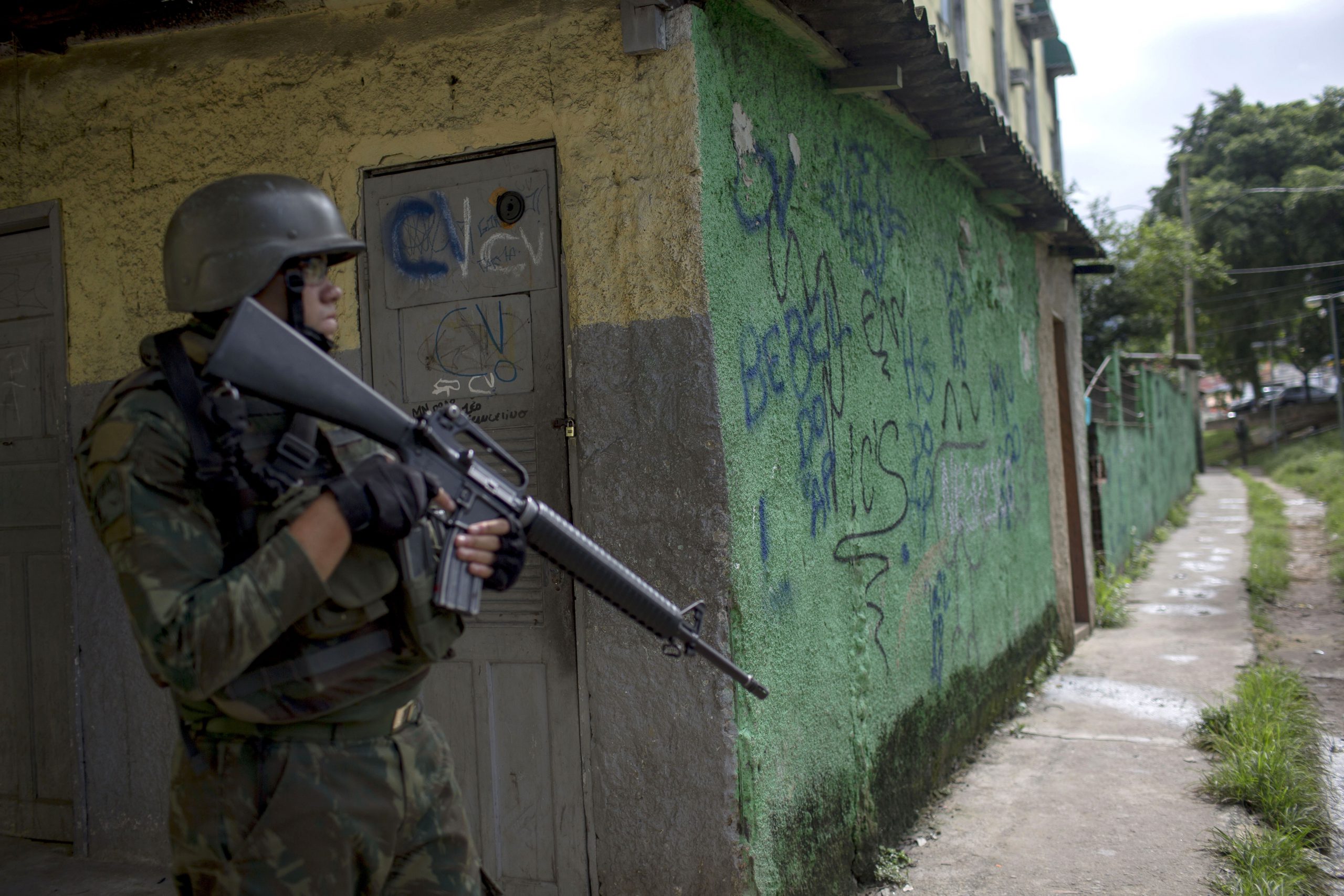Brazilians have little faith in their justice system – just 33% said they trusted the judiciary in a 2018 survey. Many believe it fosters impunity for the powerful, from politicians to the police. But at the end of 2019, advocates working to reform the system saw a reason – if a small one – to hope things could get better in the year ahead.
Shortly before Christmas, a civilian court in Rio de Janeiro acquitted seven young men from the Complexo da Penha favela community of drug charges and, unexpectedly, recognized the defendants’ claims that they were tortured by the Brazilian army. It was a surprise ruling that highlighted the alleged brutality of army units that were sent to police the favelas in early 2018.
While the military officially left Rio’s favelas in December 2018, violence by the civilian police that remain continues – and even broke records last year. The recent ruling thus came as an encouraging sign for victims of police abuse. It also showed lawyers new tactics for accountability in numerous other cases of abuse both by the military and by civilian forces policing poor communities.
The abuse in question occurred on Aug. 20, 2018, when some 4,000 Brazilian soldiers backed by armored vehicles descended on a cluster of favelas in northern Rio. The operation left at least five civilians and three members of the military dead, and resulted in 86 arrests, mostly of young men.
Troops involved in the operation reportedly physically and verbally assaulted those they arrested for several hours on the street. Some who were picked up say they were doused with pepper spray, electroshocked, and dumped in the back of a military vehicle with dead bodies placed on top of them. The abuse and torture allegedly continued for 17 hours at army barracks in the west of Rio, before the detainees were eventually moved to a civilian police station.
Subsequently, seven of those arrested were charged in two different court systems – with a civilian court hearing drug-related charges and a military tribunal for charges of carrying firearms and attempted murder of military personnel. The defendants insist they were in possession of neither drugs nor weapons when arrested.
Proving torture can be notoriously hard. In Brazil, it is even harder when a case involves the armed forces. A 2017 law made the military responsible for investigating itself in cases involving abuses against civilians, contrary to international human rights standards.
However, the men’s case before the civilian criminal court was different. In an unusual turn of events the judge, Simone de Faria Ferraz, granted a request from the Human Rights Unit at Rio de Janeiro’s public defender’s office to order additional medical examinations to address the men’s torture allegations.
Rio’s forensic institute, which is part of the civilian police force, evaluated the men in collaboration with the International Bar Association’s Human Rights Institute and its delegation of international medical experts. Their medical evaluations complied with the Istanbul Protocol, a 22-year-old manual endorsed by the U.N. and considered the international standard in torture investigations.
The examinations confirmed that the men’s allegations of torture at the hands of the military were “highly consistent” with their injuries and psychological state. The forensic institute submitted the reports to the court – marking the first time that a court in Brazil has received medico-legal reports in line with international standards.
Relying on these medical assessments, the judge questioned the credibility of the military’s statements, which she concluded were tainted by “the hateful practice of torture.” The charges were dropped – although the men from Complexo da Penha are still in detention, awaiting a second trial by a military court on separate charges. But the civil judgment now provides a touchstone that is likely to impact the military judge’s decision, given the allegations are based on the same facts and evidence.
The use of international standards in this case was thus a significant achievement—one that we hope will encourage more public defenders, prosecutors and lawyers in Brazil to request examinations in line with international standards. That would be an important step toward seeking accountability for the abuses inflicted on poor communities by the state – and for eventually restoring the Brazilian public’s confidence in its justice system.
—
Lisitsyna leads anti-torture work at the Open Society Justice Initiative.








